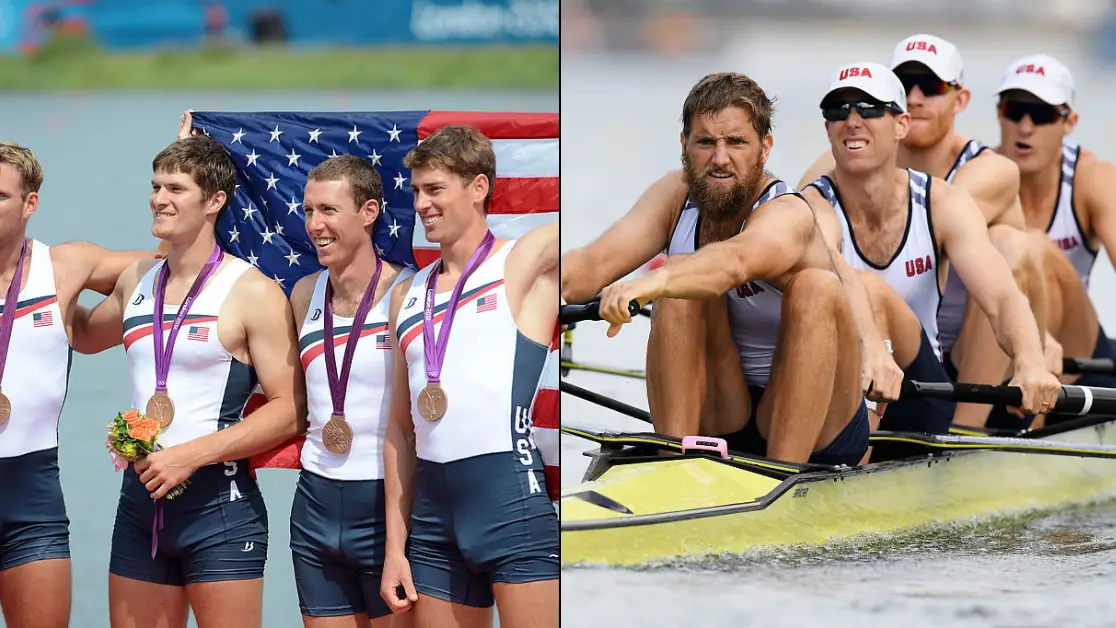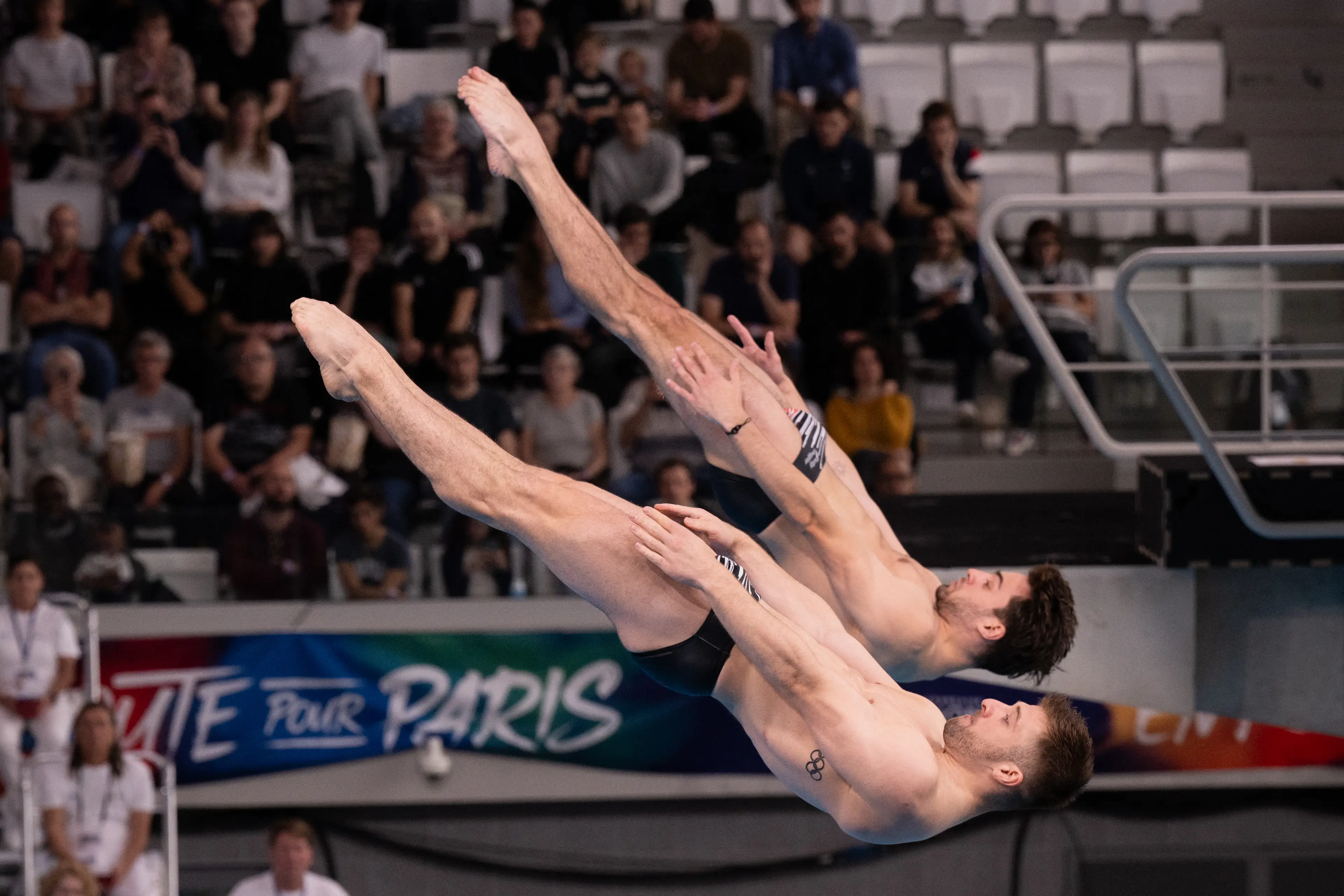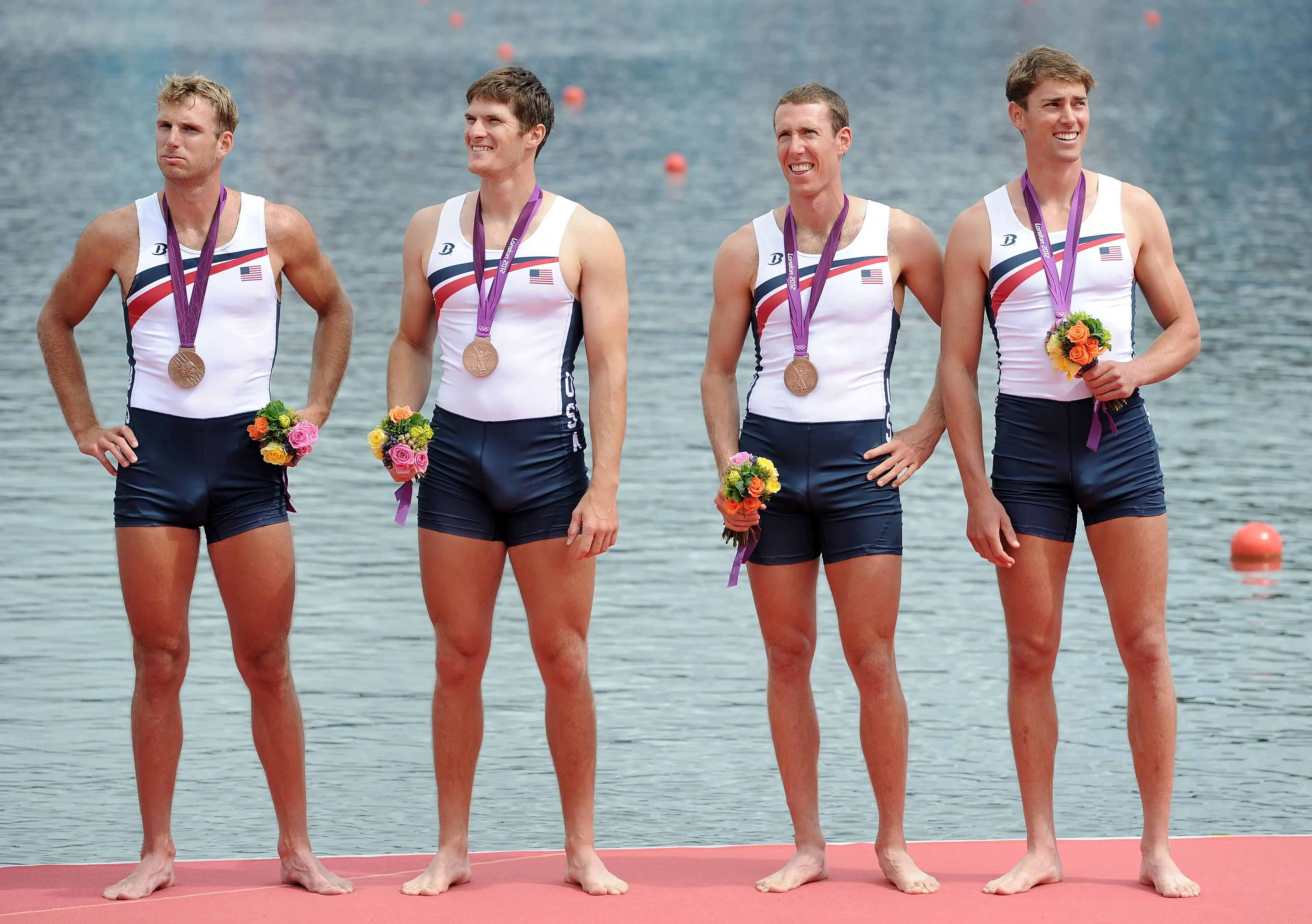
While the Olympics are a cavalcade of athletic achievements there have been some who are focused more on the fashion than the sport.
At Paris 2024 there are some viewers who don't know where to look when French diver Jules Bouyer is on screen, as his tight pair of speedos was struggling to contain what little of him they covered.
The appearance of a number of athletes has earned them a decent dollop of fame, as people are loving the Turkish shooter who rocked up to his event in his team's t-shirt and won silver without fancy adornment.
Then of course there's the celebration of the people who keep the athletes looking their best and most stylish, like the 'cap catcher' who jumps into the pool after events to retrieve the swimming caps of Olympians.
Advert
So how do athletes deal with the fact the whole world is watching them do their stuff, and sometimes while not wearing very much?

For that you might want to ask American rower Henrik Rummel, who won bronze at London 2012 and went viral when people noticed his outfit was looking a little bit tight.
Speaking to Cosmopolitan back in 2016, he said that he found the natter around his 'bulge' to be 'hilarious' as it got him on The Colbert Report and The Daily Show.
However, it was something he wished his mum could avoid seeing and revealed that his wife wasn't the biggest fan of it being what people focused on.
He said: "I took it kind of tongue-in-cheek and I thought it was hilarious, but my wife didn't like it.
"She didn't like that everyone was talking about that and not about me winning a medal at the Olympics.
"And the same thing with with my parents, they couldn't avoid it at the time, and it's not something that I am happy they had to go through."

Athletes have to follow some pretty strict rules about what they can wear at Olympic events, and there's also a question of just wearing what will least hinder their ability to compete.
Some Olympic viewers have been wondering if what the athletes are wearing is 'legal' and they very much are, otherwise they'd be disqualified.
Restrictions are incredibly strict for athletes who compete at the Olympics, especially in sports such as gymnastics, swimming and beach volleyball.
Strict rules govern the length and style of the clothes athletes are wearing, with shorts and bikini bottoms not being allowed to exceed a certain size.
Full body swimsuits were banned at the Olympics after it was found that they gave athletes an advantage, and all outfits have to be made from specific materials so it doesn't give anyone a boost compared to their rivals.
When the difference between a gold medal and not making the podium could come down to less than a second there's no reason for them not to be wearing the most optimal outfits.
The most bizarre, discontinued Olympic sports
Painting
Back in the day, the Olympics dished out medals for art too, with events including painting and sculpture, as well as music, architecture and even literature.
Making its debut all the way back at the 1912 Olympics in Stockholm and continuing until the 1948 London games, juries awarded competitors a total of 151 medals for artistic projects inspired by sport.
Tug of War
Bet you didn't think this playground classic was once part of the Olympics, did you?
Well, it turns out not only was the sport popular, but it stirred up a lot of drama too - with accusations of foul play flying around at the 1908 Olympics in London, with Team USA accusing Team GB of cheating due to their 'illegal' heavy footwear.
A mainstay for around five Olympic games from 1900 to 1920, Tug of War enthusiasts have even campaigned for organisers to reintroduce the retired sport back into the Games.
Hot Air Balloon Racing
Launching at the 1900 Olympics, hot air balloon drivers would compete in races scoring how far they could travel, altitude reached, ability to land within the correct coordinates and - to top it all off - who got the best photo from the balloon.
The sport ended up being canned after a ban on motorised sports was brought in.
Live Pigeon Shooting
Also making its debut at the 1900 Olympics, the event was pretty self explanatory - a load of pigeons were released into the air as the competitor tried to shoot as many as possible. Grim.
The event only appeared at the Games once, and all in all, it's estimated that Olympic hopefuls killed around 300 pigeons.
Pistol Duelling
It doesn't take much guessing as to why this event was scrapped, but back in 1906, people clearly didn't bat an eyelid at competitors waving pistols around and shooting at each other.
It began with competitors shooting at dummies, but two years later organisers decided to shake things up and have them shoot at each other with wax bullets. Ouch.
1908 would be the last time the sport was included in the Olympics, so I'm guessing they quickly realised it was a bad idea - wax bullets or not.